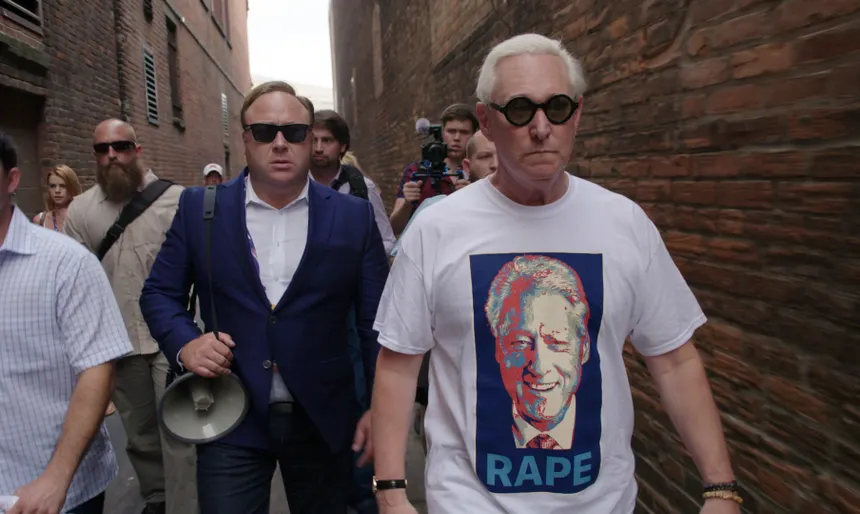As the Jeffrey Epstein messaging debacle during the Trump administration comes to a close, two key points emerge: 1) people are seeking more than just justice, and 2) Jeffrey Epstein remains a linchpin for the MAGA movement. When it became apparent that vengeance against alleged pedophile rings might not materialize, major MAGA influencers collectively lost their composure, descending into a frenzy. Logic evaporated, replaced by emotional tirades. Alex Jones was seen crying on a live stream from his vehicle, while Benny Johnson demanded transparency. This was arguably the worst week for MAGA—a self-inflicted wound.
The Influencer Meltdown
The reaction from MAGA’s most prominent voices was swift and devastating. Alex Jones, the InfoWars host, posted a nearly 10-minute emotional breakdown filmed from his car, where he broke down in tears and declared he was “physically going to puke.” In the video, Jones accused the DOJ of “running cover for the CIA and Mossad” and proclaimed “NO ONE IS BUYING THIS!!” His raw display of emotion became a symbol of the broader MAGA disappointment.
Laura Loomer, the far-right activist, immediately called for Attorney General Pam Bondi’s resignation, branding her an “abomination” and declaring that “the American people and MAGA base will not tolerate being lied to.” Loomer’s fury extended beyond Bondi, as she accused the entire administration of betrayal.
Benny Johnson, quoting George Orwell, wrote: “The Party told you to reject the evidence of your eyes and ears. It was their final, most essential command.” His response captured the dystopian feelings many in the movement expressed about the administration’s reversal.
The popular pro-Trump X account Catturd, with millions of followers, pleaded “Please tell this is fake news,” reflecting the disbelief coursing through MAGA circles. Conservative commentator Liz Wheeler joined the chorus calling for Bondi’s firing, while the Hodgetwins echoed similar demands.
Tim Pool, the right-wing podcaster, made inflammatory accusations about Bondi personally, while Mike Cernovich, known for pushing Pizzagate conspiracies, directly challenged Trump himself: “No one is believing the Epstein coverup, @realDonaldTrump. This will be part of your legacy. There’s still time to change it!”
Even Michael Flynn, Trump’s former National Security Advisor, weighed in, calling the memo “another brutal and stark example of the two different standards we appear to adhere to in the United States.”
Jack Posobiec lamented the broken promises: “We were all told more was coming. That answers were out there and would be provided. Incredible how utterly mismanaged this Epstein mess has been.”
The collective meltdown reached fever pitch when Tucker Carlson accused Bondi of covering up “very serious crimes” and suggested the administration had joined the very “deep state” it claimed to oppose.
The Administration’s Response
Trump himself appeared visibly frustrated during a Cabinet meeting when pressed about the Epstein files, snapping: “Are you still talking about Jeffrey Epstein? This guy’s been talked about for years… I can’t believe you’re asking a question on Epstein at a time like this.” His dismissive tone only fueled more anger among his base.
White House Press Secretary Karoline Leavitt attempted damage control, claiming Bondi’s previous statements about having a “client list on her desk” referred to general paperwork rather than an actual list. This explanation was met with derision from the very influencers who had supported the administration.
The Deeper Implications
Common sense dictates that releasing a list of names would be unwise, as it serves as critical leverage. Disclosing such information could endanger not only those who may not have committed crimes but also the nation, as the levers of power often hinge on such leverage. We speculate that the list and its accompanying video evidence are being used to blackmail the so-called deep state, and this assessment appears correct. On Thursday, Donald Trump deployed Roger Stone on a media circuit to rally the base.
The challenge facing MAGA is not inaction but a messaging problem. This episode has been an eye-opening lesson in politics, with disappointment in the current administration reaching an all-time high and Trump’s poll numbers trending toward a historic low.
The February release of Epstein documents—largely already public information handed out to influencers in White House binders—had already created skepticism. But the final memo declaring no further releases would come felt like a complete betrayal to those who had been promised explosive revelations.
The Fracture
The Epstein files controversy has exposed a fundamental tension within the MAGA movement: the gap between conspiratorial expectations and political reality. For years, figures like Kash Patel and Dan Bongino had themselves promoted theories about hidden client lists and cover-ups, only to now, as FBI Director and Deputy Director respectively, deliver findings that contradicted their previous statements.
This reversal has created an unprecedented rift, with some of Trump’s most loyal supporters now questioning the administration’s commitment to the very conspiracy theories that helped build the movement’s energy and engagement.
We stand by our assessment that Epstein was not only a blackmailer but also a money launderer. The list and evidence should be leveraged to counter America’s adversaries. Have you considered that many of MAGA’s victories might stem from this very blackmail?



